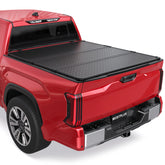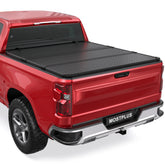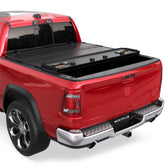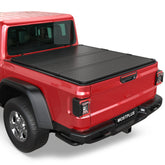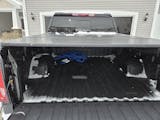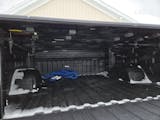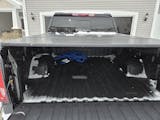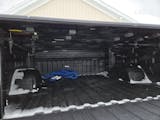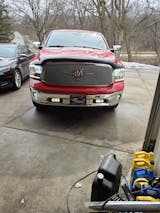How to Protect Car Floor Mats?
Car floor mats not only enhance the aesthetics of your vehicle, they also protect your original flooring from wear and tear, spills, and dirt. To ensure that your car floor mats continue to serve their purpose effectively, we need to take proper care of them. In this guide, we will explore various tips and techniques on how to protect your car mats and keep them looking like new.
1. Choose High Quality Floor Mats
Investing in quality floor mats is the first step in ensuring their longevity and effectiveness. Choose mats made of durable materials such as rubber, vinyl, or premium carpet. These materials are not only more resistant to wear and tear, but also easier to clean and maintain.
2. Clean regularly
Regular cleaning is key to maintaining the appearance and functionality of your car mats. Vacuuming is an effective way to remove loose dirt and debris. For rubber or vinyl mats, a simple wipe with a damp cloth may be sufficient. Carpet mats may require more thorough cleaning, such as using a carpet cleaner or a mixture of mild soap and water.
3. Weather Resistant Mats
In snowy or rainy conditions, rubber or all-weather mats are ideal because they are designed to resist water and prevent moisture from seeping through. During the dry season, you can switch to carpet mats for a more comfortable feel.

4. Install custom-fit mats
Custom-fit mats are designed to fit the exact dimensions of your vehicle's floor area. Unlike universal mats, which may not adequately cover the entire area, custom-fit mats provide maximum coverage, preventing dirt and spills from reaching the original flooring.
5. Use protective sprays
Applying a fabric or carpet protector spray can add an extra layer of defense against stains and spills. These sprays create a barrier that repels liquids, making it easier to wipe up accidental spills before they can penetrate the carpet fibers.
6. Regular Rotation
Rotating your floor mats regularly can help distribute wear and tear more evenly. If your vehicle has interchangeable mats for different seasons, rotating them can ensure that they all receive the same amount of foot traffic, preventing one mat from wearing out faster than the others.
7. Avoid excessive use of cleaning chemicals
Using excessive amounts of cleaning chemicals can cause premature wear and damage. Stick to mild detergents and follow the manufacturer's cleaning recommendations. Harsh chemicals can weaken the material and reduce its effectiveness over time.
8. Remove mats for deep cleaning
Periodically remove the floor mats for a more thorough cleaning. This allows you to access and clean the entire floor area under the mats, preventing the buildup of dirt and moisture that can lead to unpleasant odors and mold growth.
9. Clean up spills immediately
Accidents happen and spills are unavoidable. However, cleaning up spills immediately can prevent stains and damage. Keep a small cleaning kit in your vehicle with essentials such as a cloth, mild detergent and a brush to clean up spills as they happen.
10. Use mat liners or overlays
For added protection, consider using mat liners or overlays. These are designed to fit over your existing floor mats and provide an extra layer of protection against spills and debris. They are especially useful in high-traffic areas where wear is more likely to occur.

11. Be mindful of footwear
Encourage passengers to check their shoes before entering the vehicle. Stomping off excess mud or snow and avoiding sharp or abrasive objects can greatly reduce the risk of damage to your floor mats.
12. Store mats properly
When not in use, store your mats properly to prevent deformation. Rolling or folding mats for extended periods of time can cause wrinkling and damage. Store them flat or hang them in a cool, dry place to maintain their shape and integrity.
13. Periodic Inspection
Inspect your mats regularly to detect any signs of wear or damage. Addressing problems early can prevent further deterioration and extend the life of your mats.
14. Avoid driving with wet mats
Driving with wet mats is not only a safety hazard, but can also lead to mold growth and unpleasant odors. If your mats become saturated due to spills or inclement weather, remove them and allow them to dry thoroughly before placing them back in the vehicle.
Conclusion
In conclusion, protecting your car mats requires a combination of preventative measures and regular maintenance. By investing in quality mats, practicing regular cleaning routines, and proactively addressing spills and wear, you can ensure that your floor mats remain in top condition, improving the overall cleanliness and appearance of your vehicle's interior.
Featured Products
- $479.99
$499.99- $479.99
- Unit price
- / per
- $549.99
$559.99- $549.99
- Unit price
- / per
- $489.99
- $489.99
- Unit price
- / per
- $469.99
$489.67- $469.99
- Unit price
- / per
